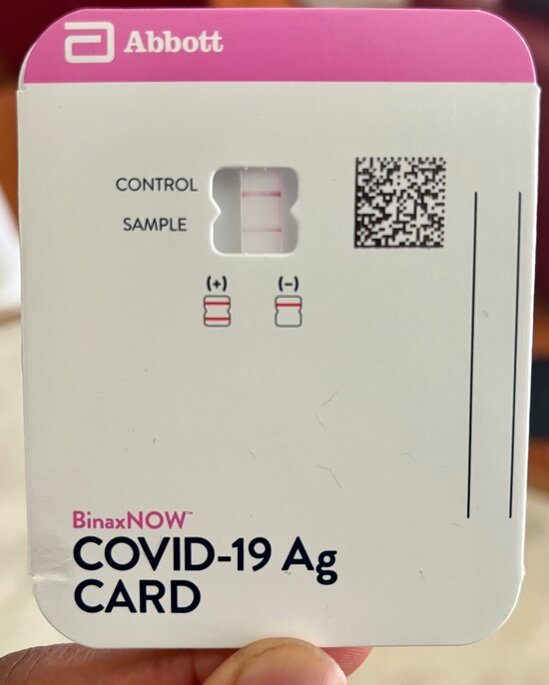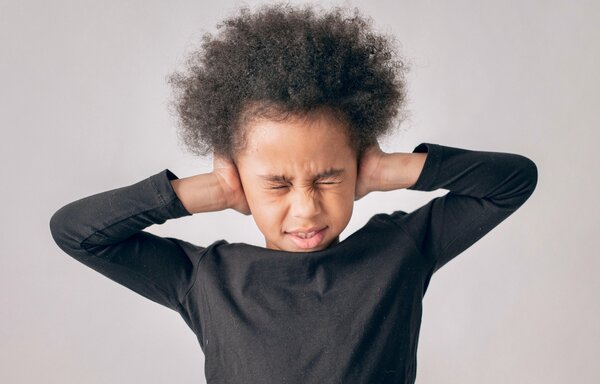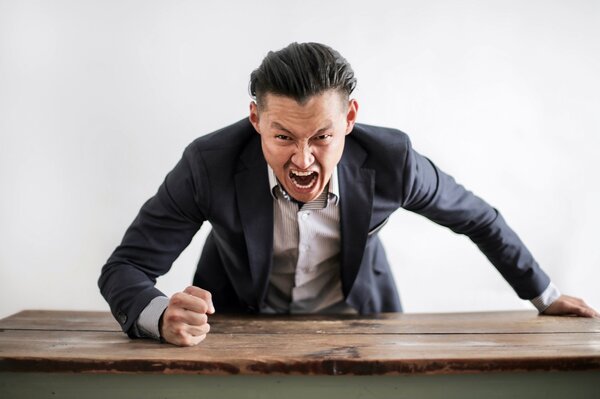 Yep, I got it too.
Yep, I got it too.
Earlier this year, I tested positive for the omicron variant of COVID-19. I’ve long since recovered though, and dare I say it, the world finally has too.
Our new normal feels a lot more like the old one these days. Heck, I’ve even shed the mask I was forced to wear at my day job the last two years.
It’s exciting to move past a trial that felt endless for so long, but before we leave the COVID era in the past, I think it’s worth reflecting on it one last time. So today, I’ve gathered 8 lessons I re-learned from my bout with the virus, and from the pandemic as a whole.
#1 Life Always Goes On
The world may have shut down for a year but life certainly didn’t.
There was still work to be done, people to meet, and places to go during the pandemic. It didn’t matter that we were facing an unprecedented global challenge. Life still went on.
Nationwide quarantines made it easy to forget those normal responsibilities. And many people used the temporary downtime as an excuse to stop trying at all. They gave up their goals, their passions, and their healthy habits. People acted as if the way things were then were how they would always be. Yet these people forgot that no matter how disruptive our problems are, life always moves forward.
It may not move in the exact direction we’d like, but it keeps going. And once the quarantines ended and transmission rates fell, we all saw proof of that.
I still had piles of work on my desk after quarantine, and I still had outlines to draft when I finally got over the virus. Life still demanded that I move forward, so that’s what I did. And nowadays, that’s what I always do.
Rain or shine, feast or famine, sickness or health, I move forward, and so should you.
#2 Always Prep for the Predictable
 With the rate COVID was spreading, there was no excuse to not prep for it.
With the rate COVID was spreading, there was no excuse to not prep for it.
Sure, hindsight is 20/20, but people who did nothing to protect themselves from the virus lacked any and all foresight.
No, I don’t say that as an advocate of vaccines—although I did get my shots along with the booster myself. I say that as someone who sees wisdom in the (not-so) common-sense response.
Back when COVID first hit in America, grocery stores were empty. Essentials like toilet paper sold at a premium. Rattled investors took millions out the stock market, and corporate ladder climbers kept both feet down.
We all had the unpredictable covered, but once we got more data and the virus became familiar, we slacked off. Instead of using our knowledge to better protect ourselves, many saw this as reason to reject change altogether.
The unknowable was scary to them, but the predictable was just an annoyance.
“Yeah, most people will get the virus”, they thought, “but it doesn’t seem fatal”. “Sure, hospitals are packed with COVID patients”, they said, “but that won’t happen to most people like me”.
People relied on good outcomes that were likely instead of shaping the odds even more in their favor. But if this pandemic taught us anything, it’s that we should always do the latter.
#3 Fear is a Blessing and a Curse
I’m not a doomer who said the pandemic would end the world, and I’m not a conspiracy theorist who said the whole thing was a hoax. I took a balanced approach to the pandemic, but even I was unusually fearful when I saw my positive result.
“What if it’s different for me?”, “What if my lungs don’t recover?”, “What if I end up in the hospital?”. All those questions crossed my mind.
Even though I was vaccinated and got the booster, I was still afraid.
Fortunately, the virus just felt like a mild flu. The only symptoms that bothered me were the initial fatigue and the cough that lasted for weeks.
The fear I had made my diagnosis much scarier than reality. And that’s what unhealthy fear does to us.
Now don’t get me wrong, healthy fear is a good thing. It keeps us out of danger and makes us respect serious concerns. But unhealthy fear goes beyond that.
Unhealthy fear is paranoia. It’s a life-altering feeling that prevents doomers from leaving their homes and conspiracy theorists from trusting anyone. But if you take reasonable steps to prepare for danger, there’s no need to let fear ruin life this way.
#4 Breaks are Incredible Medicine
 Take a look at my archives, and you’ll see my production went down the drain last year.
Take a look at my archives, and you’ll see my production went down the drain last year.
I was completely burned out of writing. It got to the point where even looking at my site made me sick.
Everything I wrote took so much energy, my normal writing spots were all closed, and I had brain fog for what seemed like months.
Maybe that was the COVID fatigue I heard so much about in the news, but either way, it wasn’t pleasant. And towards the end of the year, I had to step away.
It was a tough decision because the site was actually seeing more traffic than ever—despite my inability to write. But I’m so happy I took that break. It was two months to free my mind and see people I hadn’t talked to in years. Plus, I caught the virus near the end of it, so I took even more time than I planned.
That time away had me eager to create again. I came back and fixed the lazy errors I made when I was out of it, and I regained confidence after viewing my work with fresh eyes.
Yeah, the site took a hit traffic-wise, but it’s more important that I’m healthy enough to drive traffic here in the first place.
No, I don’t foresee myself stepping away like that again—burning out due to a global pandemic isn’t exactly a common occurrence—but I’m glad I chose to do it then. And if you’re stuck in the same rut I experienced, it might help you to take time away.
#5 People Actually Need People
I’m an introvert who can spend 8 hours writing alone in the library, yet even I suffered from the pandemic’s social effects.
I missed the lunches with coworkers, the church services with fellow Christians, and the unlimited wing nights my local joint refuses to bring back.
I missed all those events, but more importantly, I missed the people I attended them with.
The lockdown days showed me how important other people were in my life. And that time also made me aware of how my actions affected those people.
Wearing a mask felt like overkill to me for example, but people I cared about expressed concern over it, so I changed my ways. At no point did I want to wear a mask, get a shot, or avoid fun events, but I did all that out of respect for others.
People always play the “personal decision” card when they rebel against stuff like this, but almost everything we do affects someone else, and it’s selfish to only consider personal consequences.
One of the biggest signs of maturity is when you limit your freedoms for the sake of others. And the COVID era showed that we all have room to grow there.
#6 Ignoring Problems Doesn’t Solve Them
 As an engineer who’s worked in manufacturing for years, I’m well aware that ignoring problems doesn’t solve them. As soon as I notice issues with industrial equipment or machined parts, I have to address them as soon as possible. Otherwise, I’ll be drowning in work weeks later.
As an engineer who’s worked in manufacturing for years, I’m well aware that ignoring problems doesn’t solve them. As soon as I notice issues with industrial equipment or machined parts, I have to address them as soon as possible. Otherwise, I’ll be drowning in work weeks later.
My background is one reason why I was frustrated with America’s attitude towards COVID.
Some officials said this thing would be over by Easter 2020, yet here I am writing near Easter ‘22 thinking I jumped the gun. Government leaders wrote the virus off as a short-term annoyance, but we’re just now resolving it after those same leaders have left office.
Look, I’m not making a political statement here. I’m addressing the mistakes people made then so we don’t do the same in the future.
Yes, COVID-19 was an unforeseen irritant, but like most problems, it didn’t just go away. It took vaccine roll-outs, reliable testing, and safe community practices to slow it down.
COVID didn’t care about our schedules, our beliefs, or our well-being. It was simply an issue we had to face. And if we want to stop other annoyances from snowballing later, we have to face them as soon as we can.
#7 Overconfidence is Deadly
A few months into the pandemic, some people just decided COVID was over and they would do their own thing.
Many of those people were put on ventilators.
It’s one thing to ignore a problem because of the effort it takes to address it. It’s another to deny the problem entirely because of your pride.
By now, we’ve all seen conspiracy theorists, far-right talking heads, and religious nutjobs who wound up in hospitals after denying the virus. I could go on about these types for days, but I’ll only address the “Christian” ones here since they happen to be in my wheelhouse.
It was common to hear false Christian teachers claiming immunity to COVID—either because of divine protection or their power to “decree and declare” the virus ineffective. Many even dismissed the smallest concern over COVID as crippling fear being used by Satan.
In the interest of time, I won’t write a holistic address to those false statements, but I would like to use Jesus as an example here.
During the wilderness temptation, the devil took Jesus to the top of Jerusalem’s temple and said to Him, “If you are the Son of God, throw yourself down. For it is written:
“‘He will command his angels concerning you, and they will lift you up in their hands, so that you will not strike your foot against a stone.’”
Satan misapplied Scripture here—like modern false teachers often do—to convince Jesus to act recklessly. Yet Jesus responded saying, “It is also written: ‘Do not put the Lord your God to the test.’” (see Matt. 4:5-7 NIV).
The point here is that even though God was capable of saving Jesus from the fall, Jesus would have tested God by putting Himself in a position where He had to be saved. And this principle should have guided Christians during the pandemic.
Instead of asserting the strength of our “faith”—which was really spiritual arrogance—we should have taken practical steps to stop the virus and trusted God to watch our blind spots.
It’s not the Christian’s place to force God’s hand though. He is the one in authority, not us.
The pandemic affected both the world and the Church. So we all need to lose our pride, and treat reality for what it is instead of how we want it to be.
#8 Disagreement is Inevitable
 No matter how experienced you are, how well-informed your opinion is, or how helpful your words may be, you will never get everyone to agree with you.
No matter how experienced you are, how well-informed your opinion is, or how helpful your words may be, you will never get everyone to agree with you.
A family of five couldn’t even agree about pieces of cloth on their face during COVID, so why would I expect readers to accept all my words as a writer?
If you express opinions in public, disagreement is inevitable. And that’s okay.
Rejection doesn’t necessarily mean you’re wrong or you don’t have good ideas. Sometimes, you just have the wrong audience.
You couldn’t convince anti-vaxxers that the vaccine was safe for example, and you couldn’t convince 24/7 mask-wearers that the shot was enough protection.
COVID re-taught us all the valuable lesson that people do what they want to do.
You can judge their stances all you want, and you can show their illogical reasoning too, but if you value your health at all, don’t expect them to take your side.
By all means, plead your case and appreciate the people you win over, but respect everyone’s ability to make their decisions—even when you don’t agree with them.
What Did COVID Teach You?
There you have it. Those are 8 timeless lessons I re-learned during the COVID era.
Like I said earlier, it’s great that the pandemic is finally over (please God, let that statement hold up), but it’s also encouraging that I’ve grown even from a challenge like that.
So what about you?
Do you agree with the lessons I mentioned? Or do you have more that you’d like to share?
Let me know in the comments, because this time, I’d like to learn without a pandemic’s aid.
-Drew
Photo Credits (By Order of Appearance):
- My positive COVID test
- CDC — Unsplash
- Willian Justen de Vasconcellos — Unsplash
- Monstera — Pexels
- Andrea Piacquadio — Pexels
Leave a Reply